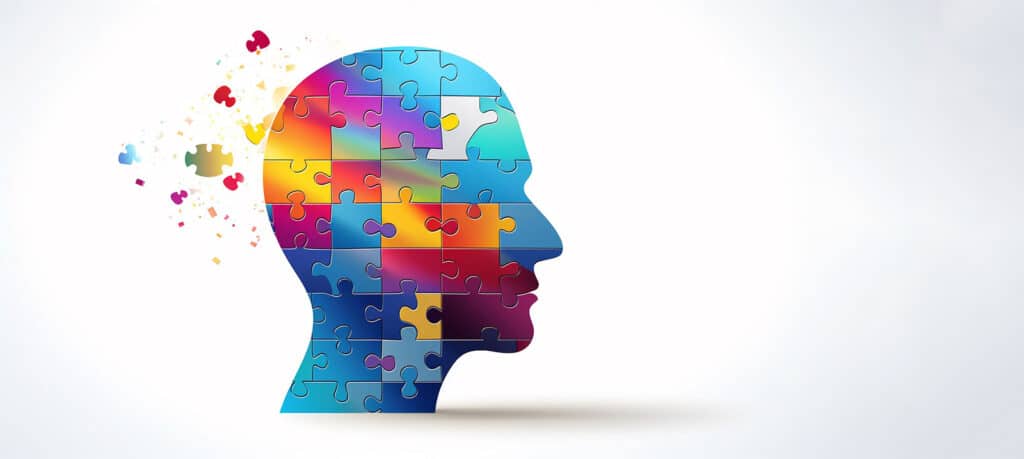Substance misuse is a nationwide epidemic that continues to affect millions of lives. In a recent survey by the National Survey on Drug Use and Health (NSDUH), over 48 million Americans suffer from one or more substance use disorders (SUD).
Addiction breeds a range of physical, psychological, and mental health issues. The individual living with drug or alcohol dependence can experience both personal and social consequences, compromising their career and relationships.
Yet, it’s a well-established fact that addictive disorders not only affect the individual, but also the loved ones and friends that surround them.
A household plagued by substance abuse generally develops problematic patterns. Thus, it’s important for holistic addiction recovery programs to support not only the person diagnosed with SUD but also the family members impacted by the disease.
This guide will walk you through family recovery coaching and other family-based treatment options, why they matter, and what steps to take to find expert help.
How Substance Use Disorder Affects the Family
While SUD is typically viewed as a personal struggle, its impact on the entire family can be just as profound.
Children Growing Up Around Substance Misuse
Children are often the most affected, with over 19 million kids living with a parent who struggles with substance misuse, a study published in JAMA Pediatrics found. That’s 1 in 4 children watching their parents spiral into drug and alcohol use.
Evidence indicates that youths with a family history of SUD are twice as likely to develop the same behavioral issues. They’re also at a higher risk of experiencing adverse consequences, including:
- Lifelong physical health problems
- Abuse (physical, emotional, and sexual)
- Emotional neglect
- Juvenile delinquent behaviors
- Poor academic performance
- Depression, anxiety, and other mental health disorders
- Drug or alcohol misuse
In one study known as Adverse Childhood Experiences (ACE), experts found that people traumatized by witnessing their parents suffer from addiction at a young age are prone to contracting certain chronic illnesses.
Among these ailments are chronic obstructive pulmonary disease (COPD), heart disease, liver disease, and sexually transmitted diseases (STDs).
Parents and Teenage Addiction
But just as children are affected by growing up around SUD, parents, too, can experience distress from teenage addiction.
According to the Centers for Disease Control and Prevention (CDC), underage drinking remains a genuine concern in the country. About 19% of people aged 12 to 20 consume alcoholic beverages regularly.
The organization also reports that over 4,000 young adults aged 21 and under die from excessive alcohol use every year.
For parents, their child’s substance abuse can become a source of chronic stress and anxiety. It can lead to a strain in their relationships and loss of trust due to the secrecy, shame, and denial that often accompany addiction.
Guardians must set healthy boundaries for teens with SUD. These boundaries protect both the parents’ and the child’s well-being and avoid enabling behaviors.
These boundaries are a form of self-care that can include not allowing alcohol or drugs in your home, not giving them money they can use to get more drugs, or holding them accountable for their own recovery.
Substance Use and Dysfunctional Family Dynamics
Over time, a household that struggles with a loved one’s substance abuse can develop dysfunctional patterns, taking on different “roles” to cope with the problem. Healthcare experts identify these roles as:
- The Savior: This is the person who attempts to compensate for the family’s “shame.” They appear as the member who never lets everyone down. Unfortunately, they often experience feelings of denial and emptiness over their family situation.
- The Scapegoat: As its name suggests, this is the person who takes the blame from the family. They create other problems that deflect attention from the person living with a substance disorder.
- The Lost Child: This is a child who’s become emotionally, and sometimes physically, withdrawn as a way to deal with family dysfunction. They suppress their emotions to avoid “rocking the boat” and inflicting unnecessary pain on others.
- The Enabler: Also called the caregiver or rescuer, the enabler is someone unwilling to hold the person who abuses drugs accountable for their behavior. They make excuses for their toxic actions, stemming from a desire to avoid embarrassment from others.
Finally, there’s the “mascot” or the “funny one.” This individual aims to lighten the serious situation with humor, offering comic relief to diffuse the tension.
However, despite their efforts, they’re often on high alert for conflict and may suffer from constant feelings of anxiety.
If you worry about the effects of alcohol and drug misuse on your parents or siblings, family coaching could help guide you to assume healthier functions.

What Is Family Coaching and How Does It Work?
While substance misuse can take a heavy toll on a household, many treatment centers offer family-based interventions to aid in the recovery journey. Family recovery coaching programs are one such service.
These programs are a specialized approach designed to support families heavily impacted by SUD and its co-occurring disorders. The goal is to guide you and your loved ones through the challenges of addiction and foster healthier relationships.
The coaching typically consists of a range of specific action plans and recovery goals. Sessions can be scheduled weekly or bi-weekly for a few months up to a year, depending on your family’s situation.
During treatment, you’ll work with a professional coach, recovery specialist, or facilitator trained in charting complex family dynamics.
Improve Family Interactions
Unlike typical talk therapies that delve into underlying mental health issues, one of the primary focuses of family coaching is actively enhancing communication between family members.
It teaches families to express their emotions and opinions effectively and constructively, encouraging a safe environment where everyone can share their experiences openly with one another.
Many struggle with setting boundaries when dealing with substance misuse. For this, coaches help families establish and maintain healthier boundaries, which protect both the caretaker and the individual recovering from SUD.
Develop Healthier Coping Strategies
Family coaching facilitates honest conversations between the members involved. This way, they can learn each other’s strengths and weaknesses and, together, develop healthier coping strategies without resorting to toxic role-taking.
In most cases, programs include practical exercises, accountability measures, and skill-building activities to ensure positive outcomes.
Offer Emotional Support and Valuable Resources
Coaching offers reliable emotional support that helps family members process their feelings about addiction and the recovery process. It equips them with knowledge, tools, and additional resources, such as referrals to other services they may need.
Ultimately, family coaching aims to nurture a compassionate environment for patients recovering from substance addiction. With a constant source of hope and support, the chances of lifelong recovery significantly improve.
Other Available Family-Based Interventions
Recovery coaching works hand in hand with various family-based interventions. Below are some of the services your healthcare provider may recommend:
- Functional Family Therapy (FFT): Designed for households with adolescent SUDs, FFT emphasizes enhancing family dynamics through effective communication, conflict resolution, behavioral contracts, and more.
- Behavioral Couples Therapy (BCT): Intended for married couples, BCT focuses on encouraging abstinence through “recovery contracts.” This is a collaborative approach where they create a clear set of goals and mutual expectations.
- Family Behavioral Therapy (FBT): In an FBT treatment model, parents can select from a set of evidence-based interventions based on their household’s unique needs. It’s been shown to be particularly effective in cases of adolescent SUDs.
- Family Recovery Support Groups: These groups support those who have family members going through SUD treatment. They provide a safe space to express, share, and learn practical coping techniques.
- Family Peer Support Services: This is for family members and caregivers of people struggling with substance misuse and other co-occurring disorders. Family peer support workers draw from their lived experiences to offer helpful insight and guidance.
Bottom Line: Our Services at Recreate Behavioral Health
In the fight against addiction, your support and participation make a world of difference. But it’s just as important to have enough support for yourself.
Recreate Behavioral Health is a trusted provider of SUD treatment and mental health services. We employ evidence-based inpatient and outpatient interventions for alcohol abuse (AUD), opioid dependence, stimulant addiction, and many more.
We offer personalized treatment services and holistic care approaches, tailored to your and your family’s unique needs. We’ll walk with you every step of the way, from detoxification to relapse prevention, ensuring lifelong healing.
Our expert staff and state-of-the-art facilities are more than ready to help you reclaim the life you and your loved ones deserve. Reach out to us and take a step toward a drug-free future today!
References
- https://americanaddictioncenters.org/rehab-guide/addiction-statistics-demographics
- https://pmc.ncbi.nlm.nih.gov/articles/PMC3725219
- https://jamanetwork.com/journals/jamapediatrics/article-abstract/2833575
- https://www.cdc.gov/alcohol/underage-drinking/index.html
- https://www.webmd.com/mental-health/addiction/addiction-what-is-denial
- https://www.addictioncenter.com/community/set-keep-boundaries
- https://www.addictioncenter.com/treatment/stage-intervention/what-is-an-enabler
- https://www.psychologytoday.com/us/blog/10000-days-sober/202104/why-communication-is-so-important-in-recovery











